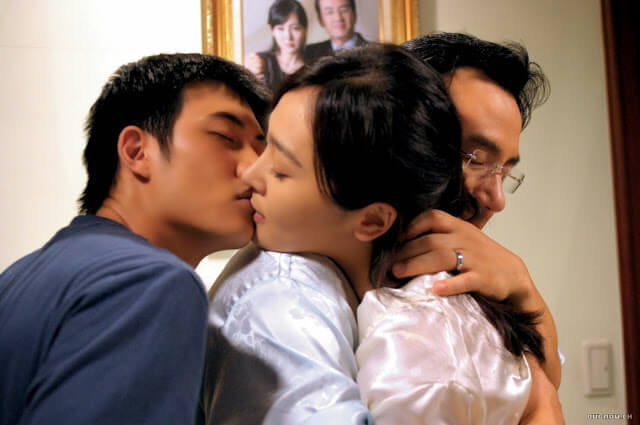In a career overwhelmed with accusations of shallow brutalism, misogyny and art-house stylisation triumphing ecstatically over substance time and again, it is a rather jolting experience to revisit Kim Ki-Duk’s elegant 3-Iron; a languid and haunting feature which suggests the heart of an artist lies beneath Kim’s propensity to provocate above all else.
3-Iron takes the form of a modern ghost story in which the ethereal characters are not spirits in the classic sense but, rather, the individuals who remain unseen in plain view, inconspicuous by their presence in society.
Tae-suk (Jae Hae) is a loner who drifts aimlessly through life, using his lack of visibility to break into houses with the sole aim of enjoying the unassuming comfort they provide – a warm bed, a luxurious bath. The only clue as to his presence are the small details he leaves behind; Tae-suk fixes clocks and does the laundry partially as thanks and equally to leave physical evidence of his existence in a world which fails to acknowledge him. One night, a slumber in a foreign home is interrupted by Sun-hwa (Lee Seung-yeon), a housewife who is regularly beaten by her husband.
Unexpectedly Tae-suk and Sun-hwa form an instant, unspoken connection; a mute relationship is instantly forged in which the two ghost-like figures become immutably bonded. Tae-suk seeks retribution on Sun-hwa’s bullying partner with the titular golf club before the two escape into the night searching for more houses to haunt with their presence.
From here, 3-Iron takes the rather unusual path of blossoming into a romance grounded in (faux) meta-physics and apparitional metaphors transition into real character traits. Tae-suk, for example, learns how to make himself disappear from view – his shadow becomes the only give-away of his existence. If you are willing to indulge in this leap of faith, and the film transgressing from eerie thriller into supernatural romance, then there is much to be enjoyed with the cod philosophy which dominates the third act.
Tae-suk and Sun-hwa are an extreme example of a doomed affair – their bond, based on nothing as slight as mere words, is at threat by the cruel world which surrounds them and it is upon this bleak backdrop that their sincere, albeit tragic, love story is painted. Indeed, Kim’s formal experiment of a largely dialogue free feature proves to be an inspired and mesmerising choice – words would always feel somehow reductive and, instead, the romance is allowed to play out on a more visceral, meditative, abstract and cerebral level than it may if exposition had attempted to challenge or explain.
Whilst Kim’s work usually revels in the vice of humanity, 3-Iron acts as an ideological polemic, almost spiritual work, which celebrates love at its purest and most unexpected. Whilst the world may be unfair and unjust, violence and despair found in each of us, Kim’s film seems to suggest that we are all capable of love and joy which transcends our physical self. A final shot of the couple longing to be together in a banal and wicked life lingers and haunts long after the screen has faded to black.


Oh I don't like watching domestic violence in tv/film :( it makes me feel so sad for days on end :(
Reply DeleteDanniella | www.famousinjapan.co.uk
No - 'tis never good to watch.
Delete